I. Introduction
AI is a field of technology that is changing quickly. It involves making machines and computer programs that can do things that usually require human intelligence, like learning, solving problems, and making decisions. In the past few years, the use of artificial intelligence (AI) has multiplied, and it is now being used to change how businesses work worldwide. There are many examples of artificial intelligence in business. We cannot ignore artificial intelligence in business in this fast-growing world. Google Bard was announced when OpenAI ChatGPT was made. Of course, we are excited about them because they make our lives easier. Can AI hel us in fighting greenhouse gases by creating more sustainability jobs, environmental science jobs, or renewable energy jobs, can we see a positive side of AI as well? We should think, “How will AI affect business in the future?”
There are many examples of artificial intelligence in business. From defense to finance to cryptocurrency, artificial intelligence is everywhere. AI is used to automate tedious tasks like data entry and customer service and to analyze large amounts of data so that people can make better decisions. Artificial intelligence is also used to automate tasks that don’t require much skill, improve customer service, and find and fix problems with equipment. In a nutshell, AI is helping businesses become more effective, productive, and competitive.
However, the widespread use of AI in business raises new ethical concerns. Concerns about the morality of allowing AI to guide life-and-death decisions arise as intelligent machines threaten human jobs. As a result, companies should weigh the pros and cons of AI and make sure they’re using it morally.
Statement
Taking these trends into account, the article’s thesis states that incorporating AI will significantly alter how businesses are run, from increasing efficiency and productivity to introducing new ethical considerations. It is essential for companies to understand the potential impacts of AI and to prepare for the changes it will bring. After this short introduction, this article will discuss the pros and cons of adopting AI and how businesses can prepare for the artificial intelligence revolution.
II. Benefits of using Artificial Intelligence in Business
Of Course, artificial intelligence is affecting our society in both positive and negative ways. This is improving our lives and becoming more helpful in ways we never thought possible. Many AI tools help us in marketing by improving efficiency, saving time and energy. These are a few reasons top companies like DeepMind and OpenAI have worked on this tech for years.
I. Increased Efficiency and Productivity
Artificial intelligence in business has tons of advantages. Artificial intelligence (AI) can significantly improve corporate effectiveness when properly implemented. Here are some key ways in which AI can achieve this:
A. AI can automate routine tasks, freeing time for employees to focus on higher-level work.
When saving time, artificial intelligence in business is the best option. Data entry, scheduling, and paperwork take up a significant portion of most businesses’ time. By using AI to take care of menial tasks like these, workers will have more time and mental energy to devote to activities that directly contribute to the company’s success. McKinsey estimates that by automating repetitive tasks, workers could gain 20% more time to devote to activities that call for human judgment and creativity in the workplace.
B. AI can process data much faster than humans, leading to more accurate and timely decision-making.
In a world where businesses are constantly getting new data, AI can quickly process and analyze this data to help companies to make better, more well-informed decisions. Artificial intelligence can crunch through massive data sets up to three hundred times faster than humans. This can be especially helpful in the financial sector and other fields where decisions with time-sensitive effects need to be made quickly.
C. Examples of AI improving efficiency in industries such as healthcare, manufacturing, and finance.
Artificial intelligence (AI) is used in healthcare to automate routine tasks like medical diagnosis and drug discovery. AI is used in manufacturing to optimize production processes and predict when maintenance will be needed. This leads to less downtime and more efficiency. Artificial intelligence (AI) is used in the financial sector to sift through mountains of data to make better investment choices.
Artificial intelligence has the potential to enhance business efficiency and output significantly. Accenture found that AI could boost productivity by up to 40% by 2035, saving a lot of money and making businesses more profitable. Companies need to figure out where AI can make a big difference in efficiency and productivity and then invest in the tools and people to make that difference happen.
II. Improved Decision-Making through Data Analysis
By sifting through mountains of data in search of patterns and insights that humans might miss, artificial intelligence (AI) can help businesses make better decisions. There are several important ways in which AI can accomplish this:
A. AI can analyze large amounts of data and identify patterns humans may miss.
Every part of a business generates data, from customer reviews and sales numbers to the number of people who visit a website or social media page. Artificial intelligence can examine this information and spot trends, and insights humans might miss. Businesses can use this information better to tailor their offerings to their clientele’s preferences.
B. AI can make predictions and recommendations based on data, helping businesses make informed decisions.
Using past data, AI can forecast future tendencies and actions. For instance, it can foresee which customers will leave, which products will sell well, and which advertising strategies will generate the most revenue. Data-driven AI can also make suggestions, such as which products to upsell to a customer or how much to charge for a good or service.
C. Examples of AI being used for data analysis in industries such as marketing, supply chain management, and customer service.
Artificial intelligence (AI) is used in the marketing industry to understand better consumer habits and tailor strategies to increase participation. This is used to cut costs and improve the efficiency of supply chain management by optimizing inventory levels and predicting demand. Artificial intelligence is being used in customer service to analyze feedback and sentiment.
PwC found that 75% of businesses already use AI for data analysis, and 64% believe it gives them an edge in the market. A McKinsey study also found that companies that incorporate AI into their decision-making processes are twice as likely to report revenue growth of 10% or more than those that do not.
Using AI to analyze data can make a company more competitive and efficient. However, businesses must use AI ethically and responsibly and make sure their data is high quality.
III. Enhanced customer experiences through personalization and automation
When we talk about examples of artificial intelligence in business and how this benefits the community, Automation and better customer experience are top of the list.
- AI can personalize customer experiences by analyzing data on their preferences and behavior. AI can analyze customer data to tailor services and experiences to each individual. Based on a customer’s browsing and purchasing habits, AI can tailor product recommendations, email marketing campaigns, and chatbot interactions, among other things.
- AI can automate customer service tasks such as chatbots and virtual assistants, providing 24/7 support. Chatbots can answer the most common questions customers have, and they can also be used to provide product details and take orders. Automating these processes allows businesses to provide faster and better service while letting workers focus on more critical tasks.
- Examples of AI improving customer experiences in industries such as retail, hospitality, and telecommunications. Artificial intelligence (AI) is used in retail to improve in-store recommendations and customer service. Artificial intelligence is used in the hospitality industry to tailor services and experiences to each customer. Using chatbots and virtual assistants is one-way artificial intelligence is used in the telecommunications industry to serve customers better.
Accenture found that 75 % of customers are more likely to purchase from a store if the staff addresses them by name, makes recommendations based on their previous purchases, or has access to their purchase history. The use of AI in customer service has been shown to increase satisfaction levels by 23%, according to research conducted by Salesforce.
IV. Reduced costs through automation of routine tasks
- AI has the potential to automate a wide range of boring but necessary tasks, like data entry, inventory management, and accounting, which would significantly reduce the need for human labor in these areas. By eliminating the need for people to do these tedious tasks, businesses can save time and money while also improving the quality of service and how much they get done.
- AI can diagnose and fix equipment malfunctions before they escalate into costly emergencies. AI can look at data from sensors and other sources to figure out why machinery isn’t working as well as it should. Downtime and repairs are expensive for businesses, but they may be avoided with this method.
- In the transportation, energy, and agricultural sectors, AI has already proven its cost-cutting abilities. AI is used in the transportation industry to improve efficiency and reduce emissions. AI has helped the energy industry predict and stop equipment failures, cutting downtime and maintenance costs. Artificial intelligence is used in farming to improve crop yields while decreasing input costs.
McKinsey estimates that by 2025, businesses worldwide could save $2.6 trillion in labor costs thanks to automation. PwC also found that companies that have already begun to invest in AI have seen an average 3% increase in profit margin.
By using AI to personalize, automate, and find problems, businesses can improve customer experience, cut costs, and become more competitive. However, companies need to make sure they are using AI ethically and responsibly and be transparent with their customers about how their data will be used.
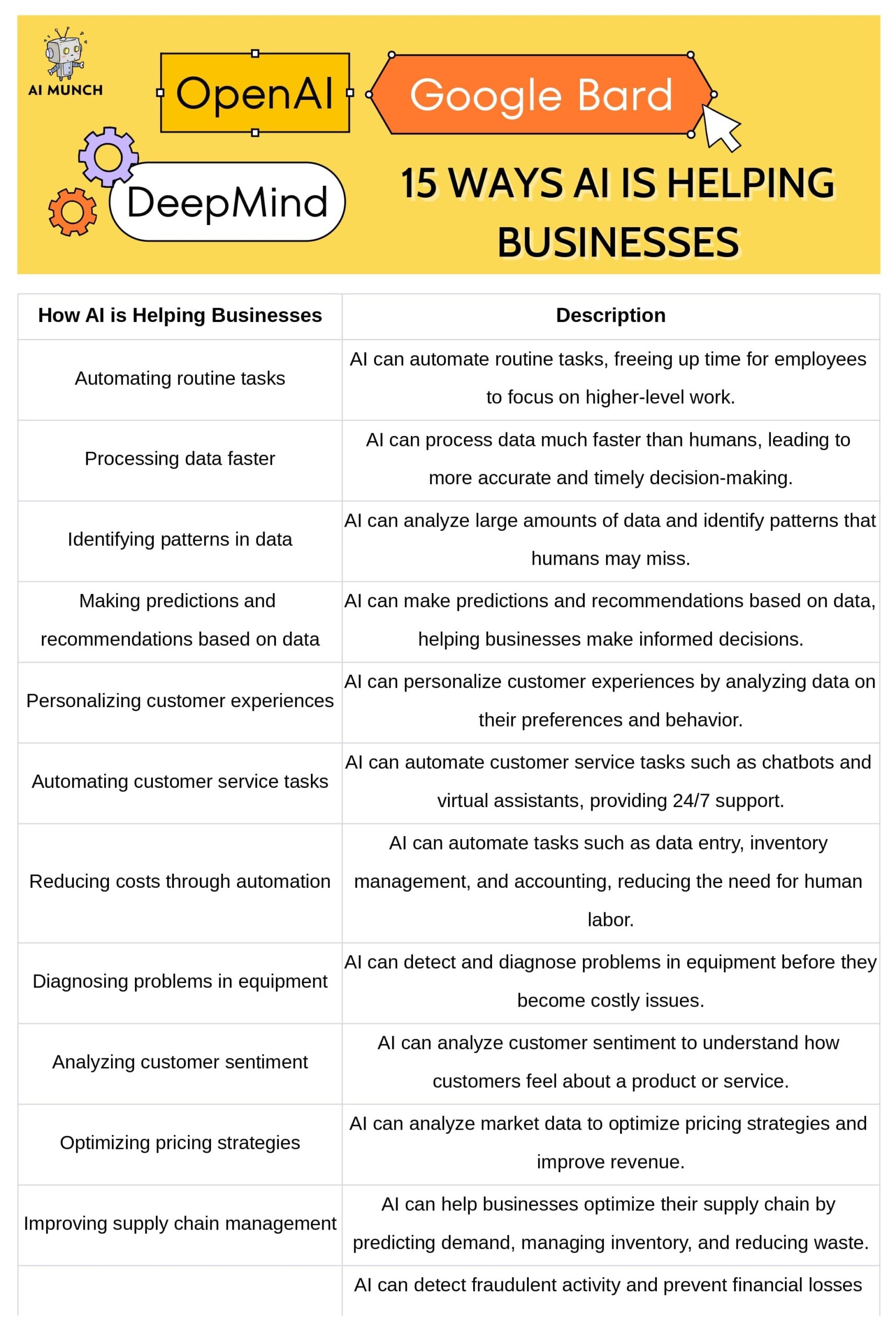
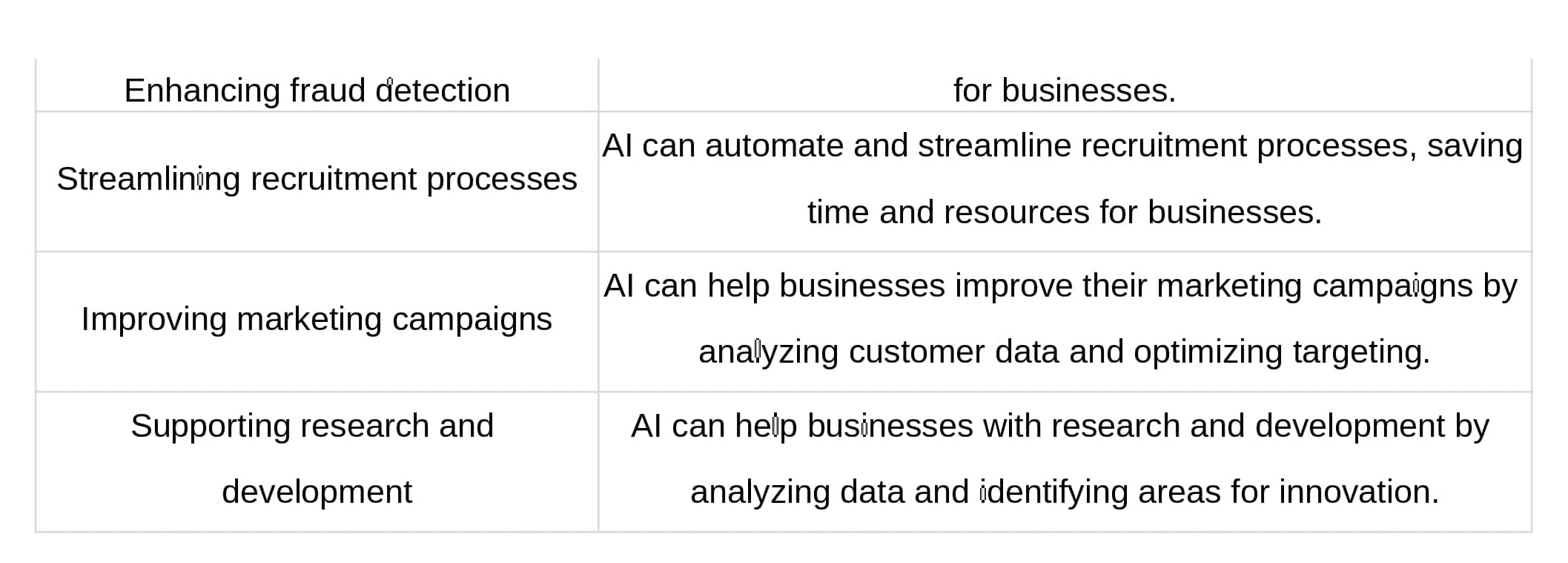
III. Potential Drawbacks of Artificial Intelligence in Business
- Low-skilled jobs are becoming obsolete as a result of automation and job displacement. Due to progress in artificial intelligence, jobs that don’t require a lot of skill could be taken over by machines. No matter how many jobs in sustainability are, McKinsey suggests that as many as 800 million jobs could be automated by 2030. The World Economic Forum predicts that as many as 85 million jobs could be lost to AI and automation by 2025.
- Risks associated with relying too heavily on technology. There’s a danger that as businesses rely more and more on AI; they’ll become overly reliant on technology, which presents its own set of risks in terms of vulnerability and security. For instance, cyberattacks on AI-driven systems pose risks of data breaches, IP theft, and other undesirable outcomes.
- Decision-making needs the creativity and intuition of humans. Human ingenuity and intuition can be invaluable when making important decisions, but AI is still a long way off. This can cause people to make poor choices because they need to consider all relevant information fully.
IV. Preparing for the transition to Artificial Intelligence for Business
- Finding places in the company where AI could be useful. Businesses must determine where AI can be implemented to best benefit operations and judgment. Data analysis, customer service, and supply chain management are examples of such activities.
- Teaching workers the latest tools and techniques they’ll need to work with AI. As businesses adopt AI, training employees on the new technologies and skills required to work alongside AI is vital. Data analysis, computer programming, and problem-solving are all part of this category.
- Avoiding discrimination and bias by using AI responsibly. Businesses need to make sure AI is being used fairly and without prejudice. Among these are being forthright with customers about data usage and implementing diversity and inclusion policies.
In conclusion, using AI in business has many benefits, but companies need to weigh the risks and plan accordingly. Among these are determining which parts of the business would benefit from using AI, providing appropriate education and training for employees, and regulating the application of AI in a way that prevents discrimination and bias.
V. What comes after the Transition to Artificial Intelligence in Business?
We have already discussed the future directions of artificial intelligence. But how will AI affect business in the future? Those in charge of business must consider the future as they implement AI. Due to AI’s introduction, companies must adapt to new working methods. Following the adoption of AI, companies may want to think about the following:
- Artificial intelligence in business enhance human capabilities that can not possible without this technology, such as imagination, empathy, and analysis. Artificial intelligence (AI) can automate repetitive tasks and provide data analysis, but it cannot replace human abilities like creativity and emotional intelligence. Businesses must invest in the growth of these ancillary skills to reap AI’s benefits without losing their competitive edge.
- AI may bring significant benefits to businesses, but it also has potential drawbacks, such as job displacement and bias, that must be considered. There are ethical concerns associated with using AI that businesses should be aware of and work to address. It could involve re-educating workers in new positions or ensuring data is used ethically to prevent bias.
- New product and service development strategies that utilize AI’s capabilities should be investigated. To innovate and stay competitive, businesses should examine these possibilities and consider how they can use AI.
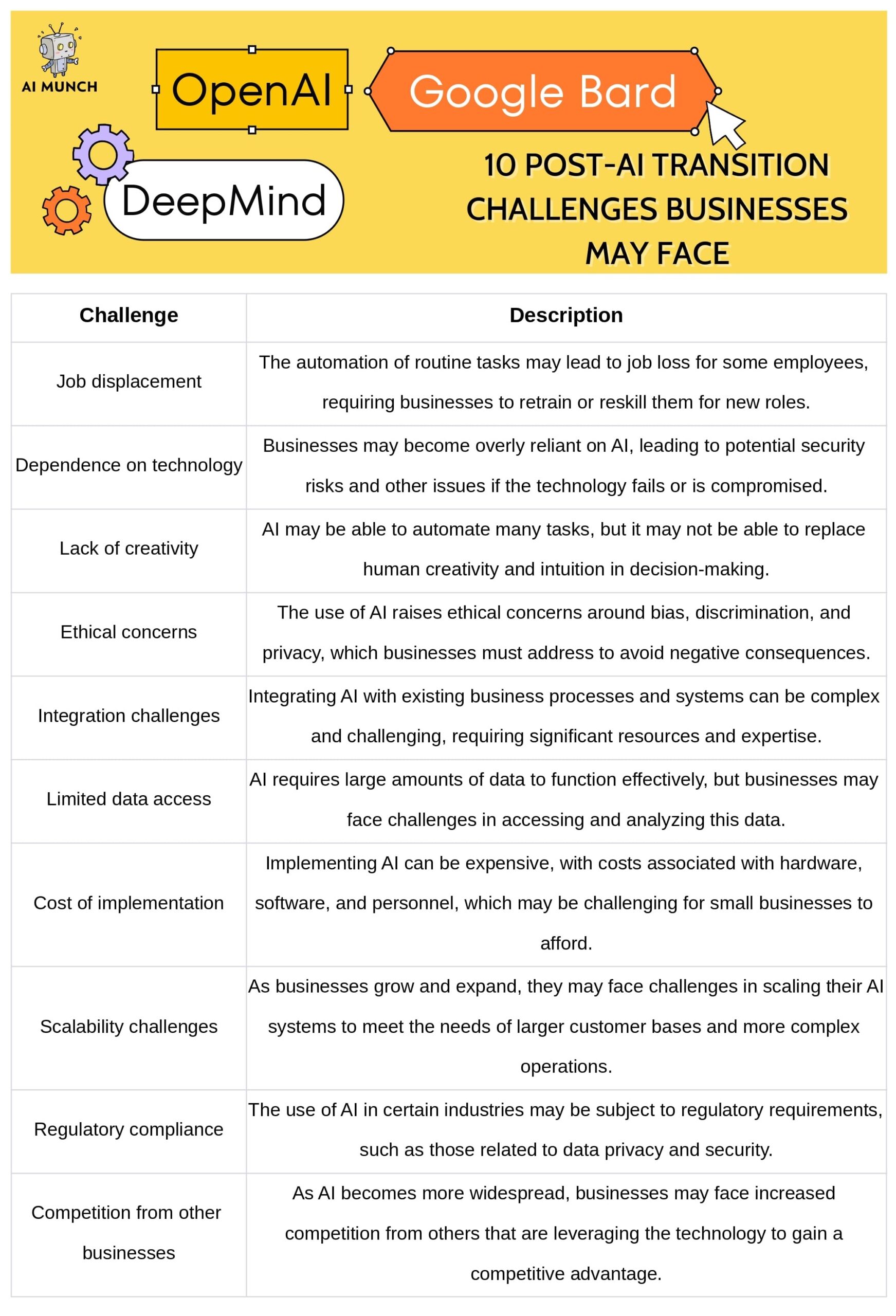
VI. Conclusion
Now we know the answer to “how will AI affect business in the future?” We have read several examples of artificial intelligence in business. We know that implementing artificial intelligence in business will change its processes significantly. However, businesses need to plan for the switch to AI and think about the pros and cons of the technology, which include increased efficiency and productivity as well as new ethical concerns. Businesses need to keep using AI in their operations and work on building up human skills that AI needs help to do. They must also consider the ethical implications of using AI and try out new business models that take advantage of its power.
FAQs Artificial Intelligence in Business
AI impacts business innovation by enabling companies to create new products and services and improve existing ones. It can also help businesses to identify new market opportunities and improve processes.
AI significantly impacts business and society by making businesses more efficient, lowering costs, and giving customers a better experience. However, it also raises ethical concerns such as job displacement and bias.
‘Artificial intelligence in business’ helps businesses improve efficiency, reduce costs, and provide personalized customer experiences. It can also identify patterns in data to make informed decisions and automate routine tasks.
AI makes businesses more efficient by automating routine tasks, processing data faster than humans, and finding patterns in data that humans might miss. This helps people make better and faster decisions and gives them more time to work on higher-level tasks.
AI is changing how businesses work fundamentally by giving them new ways to be innovative and more efficient. It is also transforming customer experiences through personalization and automation.
AI is used in business in various ways, including chatbots and virtual assistants for customer service, predictive analytics for marketing, and automation of routine tasks such as data entry and inventory management.
AI helps businesses solve several problems, such as cutting costs by automating routine tasks, making better decisions by analyzing data and giving customers a more personalized experience. It also enables businesses to identify new market opportunities and improve processes. However, it also raises ethical concerns such as job displacement and bias.



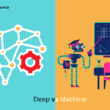
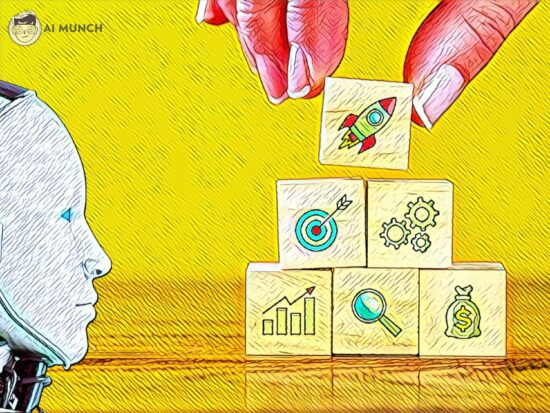



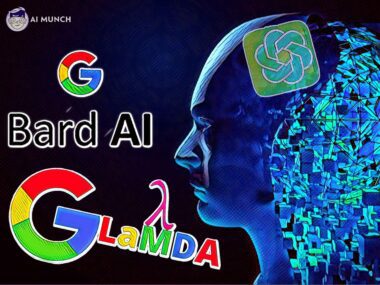


25 comments